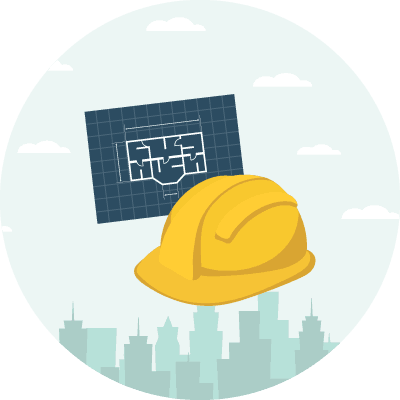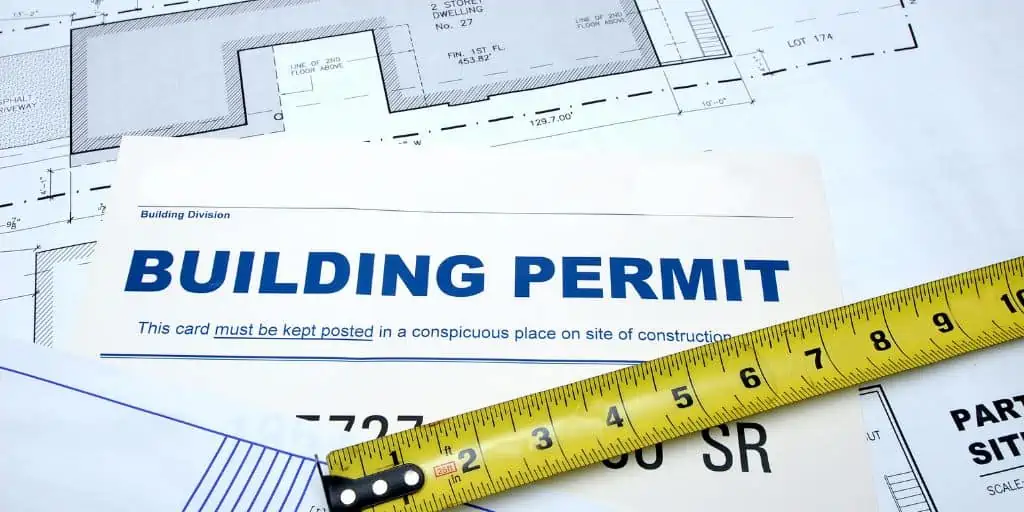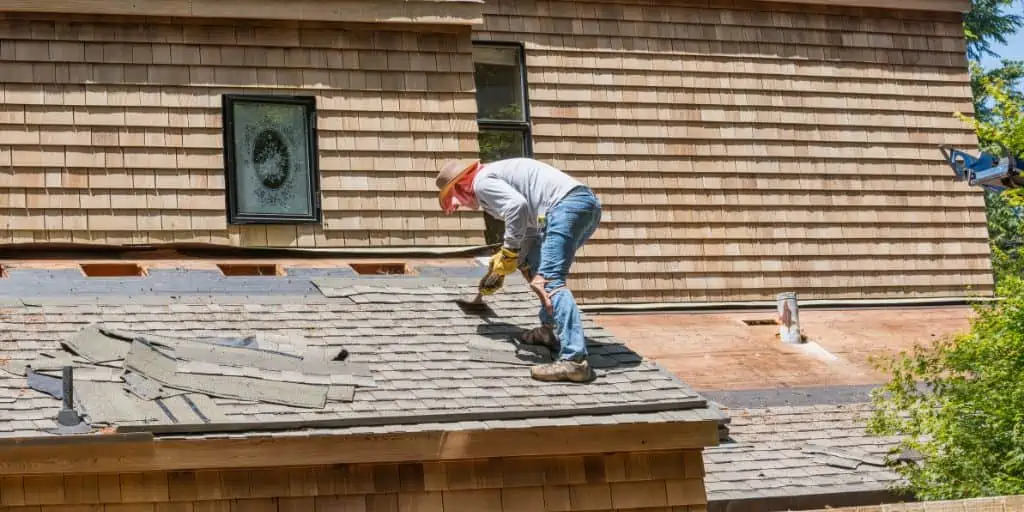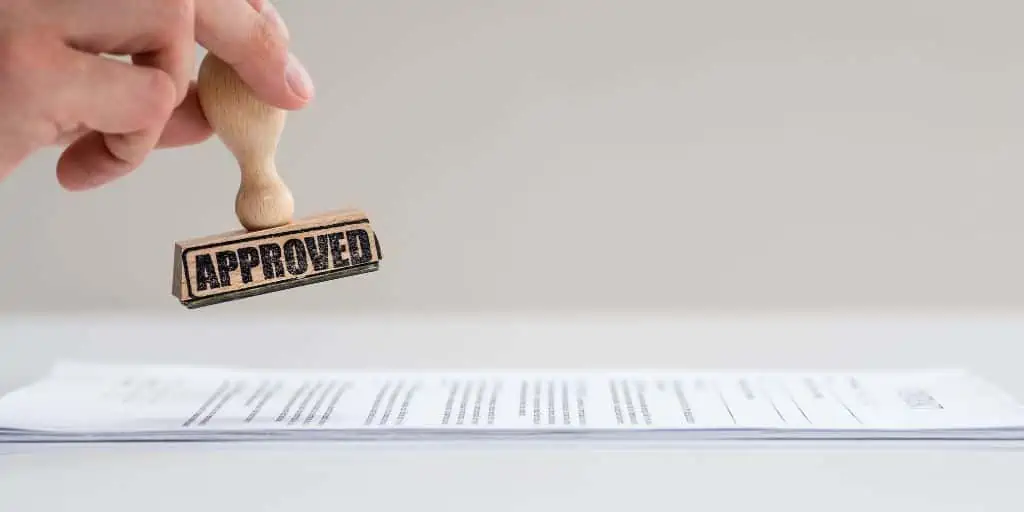What Is a Building Permit?
What Is a Building Permit For?
The purpose of a building permit is primarily to ensure that the planned construction or improvements comply with local standards for land use, zoning, and construction[1]. These guidelines vary by city or county.
Contractors and homeowners may face serious penalties if they perform construction work without the proper building permits[2]. If local building officials find out that major construction has begun without express permission from the local building inspector, they may shut down the project or impose serious fines on the developer or owner.
Local authorities may impose a fine on owners who skip or violate the building permit process. Some may also have to pay double or triple the price of building permit fees for failing to comply with local rules the first time.
Not all building permits are effective forever; some may need to be renewed from time to time.
When Is a Building Permit Needed?
Not all construction projects require building permits.
Generally, simple repairs and replacements, such as installing new floors, replacing leaky faucets, repaving driveways, repainting exteriors, and similar activities[3] do not require a building permit. However, a permit is required if the project requires significant changes to the property’s structural, electrical, and mechanical systems[4].
Homeowners usually need to secure building permits for the following[5]:
- Constructing accessory dwelling units (ADUs, also called granny flats or backyard cottages) on the property. These may include such structures as barns or sheds.
- Adding new rooms or expanding the living space.
- Enlarging the yard.
- Modifying ductwork for utilities (e.g., gas or electric).
- Converting a garage.
- Replacing a roof.
- Demolishing a part of the house.
- New fencing (if over six feet in height).
- Adding or removing walls.
- Excavating.
That said, these regulations vary by area, so a homeowner, developer, or contractor may need to consult the authorities before proceeding with the project.
How to Obtain a Building Permit
Contractors, builders, and developers are usually responsible for getting building permits for major construction projects before they begin construction. The contractor has to address issues that may come up during construction and make sure the work follows local rules[6].
In general, whether one is professional or not, as long as they are doing the job (i.e., constructing the project), they are responsible for securing the building permit and abiding by local building codes[7].
Like most specifications on building permits, the process for getting one differs by the municipality, county, or state. However, it will typically involve the following steps[8]:
- Call the local building office or check their website. Contractors must describe the project to local building officials to determine the necessary permits. Some construction jobs may require multiple permits depending on the type and scale. Major projects usually need permits for construction, electrical, and plumbing work.
- Prepare the application. Builders may file an application online or in person. Local building officials may also require drawings or site plans of the project to show that they meet building codes. Some may also require a complete set of blueprints for a new building.
- Apply and pay the filing fee. Permit fees vary but are typically based on the size of the construction project. Permit fees cover the costs of the review and inspection process.
- Go through the review process. Some permits get approved on the spot, while others will go through a review process that may take days, weeks, or months. How fast a permit gets approved depends on the complexity of the project. Local officials may request corrections and revisions before approving the permit.
- Get the permit and display it. Construction on the property may begin when the plans are approved and the contractor obtains a building permit. Contractors should post the permit in a visible manner and near the work area.
- Schedule inspections. If the construction has a long enough time frame, inspectors may need to visit the site periodically and check if the work follows building codes and plans. Any major changes must be reviewed and approved by local building officials. Contractors must get final approval once the construction is complete.
BY THE NUMBERS: Building permits can cost anywhere from $150 to $3,000, depending on the location and how extensive the project is.
Source: HomeAdvisor
Takeaways
- A building permit is written approval from the local government approving a planned construction or renovation work of a piece of real estate.
- Homeowners may need to secure a building permit for significant alterations to their property, such as adding new rooms or buildings or taking down portions of the property.
- Contractors and builders are usually responsible for obtaining building permits, but in some cases, the owner or investor may have to do it themselves.
Sources
- Kenton, W. (2022.) Building Permits. Investopedia. Retrieved from https://www.investopedia.com/terms/b/building-permits.asp
- Beneke, J. (2022.) What Is a Building Permit? The Spruce. Retrieved from https://www.thespruce.com/what-is-a-building-permit-1398344
- Insureon.com. (n.d.) How do construction and contractor licenses and permits work? Retrieved from https://www.insureon.com/blog/what-to-know-about-construction-licenses-permits
- Scout Services. (2019.) What types of projects require building permits? Retrieved from https://www.scoutservices.com/what-types-of-projects-require-building-permits
- Nolo. (n.d.) When Homeowners Must Obtain Permits for Home Projects. Retrieved from https://www.nolo.com/legal-encyclopedia/home-improvement/when-homeowners-must-obtain-permits-for-home-projects.html
- Pawlukiewicz, A. (2021.) Who Pays For Building Permits? Angi. Retrieved from https://www.angi.com/articles/who-pays-building-permits.htm
- Randall, S. (n.d.) Contractor Didn’t Pull A Permit? (Here’s What You Can Do). Upgraded Home. Retrieved from https://upgradedhome.com/contractor-didnt-pull-a-permit/
- Kelly, J. (n.d.) How Building Permits Work. HowStuffWorks. Retrieved from https://home.howstuffworks.com/home-improvement/construction/planning/building-permit.htm











